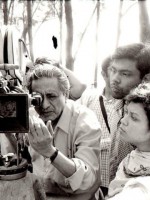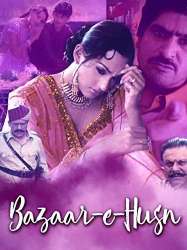Munshi Premchand est un Scénariste Indien né le 31 juillet 1880
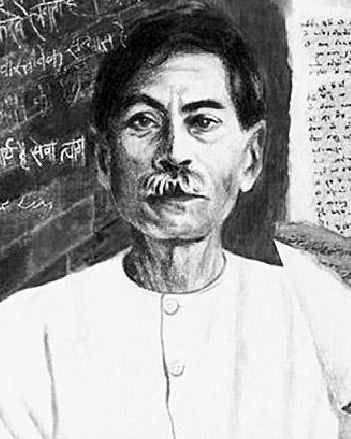
Munshi Premchand (Urdu: منشی پریم چند, Hindi: मुंशी प्रेमचंद, [mʊnʃi preːm t͡ʃənd̪]) (31 July 1880 – 8 October 1936) was an Indian writer famous for his modern Hindustani literature. He is one of the most celebrated writers of the Indian subcontinent, and is regarded as one of the foremost Hindustani writers of the early twentieth century.
Born Dhanpat Rai Srivastav, he began writing under the pen name "Nawab Rai", but subsequently switched to "Premchand", while he is also known as "Munshi Premchand", Munshi being an honorary prefix. A novel writer, story writer and dramatist, he has been referred to as the "Upanyas Samrat" ("Emperor among Novelists") by some Hindi writers. His works include more than a dozen novels, around 250 short stories, several essays and translations of a number of foreign literary works into Hindi.
Premchand was born on 31 July 1880 in Lamahi, a village located near Varanasi (Benares). His ancestors came from a large family, which owned six bighas of land. His grandfather Gur Sahai Lal was a patwari (village accountant), and his father Ajaib Lal was a post office clerk. His mother was Anandi Devi of Karauni village, who could have been the inspiration for the character Anandi in his Bade Ghar Ki Beti. Premchand was the fourth child of Ajaib Lal and Anandi; the first two were girls who died as infants, and the third one was a girl named Suggi. His parents named him Dhanpat Rai ("the master of wealth"), while his uncle, Mahabir, a rich landowner, nicknamed him "Nawab" ("Prince"). "Nawab Rai" was the first pen name chosen by Premchand.
When he was 7 years old, Premchand began his education at a madarsa in Lalpur, located around 2½ km from Lamahi. Premchand learnt Urdu and Persian from a maulvi in the madarsa. When he was 8, his mother died after a long illness. His grandmother, who took the responsibility of raising him, died soon after. Premchand felt isolated, as his elder sister had already been married, and his father was always busy with work. His father, who was now posted at Gorakhpur, re-married, but Premchand received little affection from his step-mother. The step-mother later became a recurring theme in Premchand's works.
After his mother's death, Premchand sought solace in fiction, and developed a fascination for books. He heard the stories from the Persian-language fantasy epic Tilism-e-Hoshruba at a tobacconist's shop. He took the job of selling books for a book wholesaler, thus getting the opportunity to read a lot of books. He learnt English at a missionary school, and studied several works of fiction including George W. M. Reynolds's eight-volume The Mysteries of the Court of London. He composed his first literary work at Gorakhpur, which was never published and is now lost. It was a farce on a bachelor, who falls in love with a low-caste woman. The character was based on Premchand's uncle, who used to scold him for being obsessed with reading fiction; the farce was probably written as a revenge for this.
After his father was posted to Jamniya in the mid-1890s, Premchand enrolled at the Queen's College at Benaras as a day scholar. In 1895, he was married at the age of 15, while still studying in the 9th grade. The match was arranged by his maternal step-grandfather. The girl was from a rich landlord family and was older than Premchand, who found her quarrelsome and not good-looking.
Premchand's father died in 1897 after a long illness. He managed to pass the matriculation exam with second division. However, only the students with first division were given fee concession at the Queen's College. Premchand then sought admission at the Central Hindu College, but was unsuccessful due to his poor arithmetic skills. Thus, he had to discontinue his studies.
Premchand then obtained an assignment to coach an advocate's son in Benares at a monthly salary of five rupees. He used to live reside in a mud-cell over the advocate's stables, and used to send 60% of his salary back home. Premchand read a lot during these days. After racking up several debts, in 1899, he once went to a book shop to sell one of his collected books. There, he met the headmaster of a missionary school at Chunar, who offered him a job as a teacher, at a monthly salary of 7px 18. He also took up the job of tutoring a student at a monthly fees of 7px 5.
In 1900, Premchand secured a job as an assistant teacher at the Government District School, Bahraich, at a monthly salary of 7px 20. Three months later, he was transferred to the District School in Pratapgarh, where he stayed in an administrator's bungalow and tutored his son.
Dhanpat Rai first wrote under the pseudonym "Nawab Rai". His first short novel was Asrar e Ma'abid (Devasthan Rahasya in Hindi, "The Mystery of God's Abode"), which explores corruption among the temple priests and their sexual exploitation of poor women. The novel was published in a series in the Benares-based Urdu weekly Awaz-e-Khalk from 8 October 1903 to February 1905. Siegfried Schulz states that "his inexperience is quite evident in his first novel", which is not well-organized, lacks a good plot and features stereotyped characters. Prakash Chandra Gupta calls it an "immature work", which shows a tendency to "see life only white or black".
Stay at Kanpur
From Pratapgarh, Dhanpat Rai was relocated to Allahabad for training, and subsequently posted at Kanpur in 1905. Premchand stayed in Kanpur for around four years, from May 1905 to June 1909. There he met Daya Narain Nigam, the editor of the magazine Zamana, in which he later published several articles and stories.
Premchand visited his village Lamahi during the summer vacation, but did not find the stay enjoyable due to a number of reasons. He did not find the weather of the atmosphere conducive for writing. Plus, he faced domestic trouble due to quarrels between his wife and his step-mother. Premchand angrily scolded his wife, after she unsuccessfully tried to commit suicide by hanging. Dismayed, she went to her father's house, and Premchand displayed no interest in bringing her back. In 1906, Premchand married a child widow, Shivarani Devi, who was the daughter of a landlord from a village near Fatehpur. The step was considered to be revolutionary at that time, and Premchand faced a lot of social opposition. After his death, Shivarani Devi wrote a book on him, titled Premchand Ghar Mein ("Premchand in House").
In 1905, inspired by the nationalist activism, Premchand published an article on the Indian National Congress leader Gopal Krishna Gokhale in Zamana. He criticised Gokhale's methods for achieving political freedom, and instead recommended adoption of more extremist measures adopted by Bal Gangadhar Tilak. Premchand's first published story was Duniya Ka Sabse Anmol Ratan ("The Most Precious Jewel in the World"), which appeared in Zamana in 1907. According to this story, the most precious 'jewel' was the last drop of blood necessary to attain independence. Many of Premchand's early short stories had patriotic overtones, influenced by the Indian independence movement.
Premchand's second short novel Hamkhurma-o-Hamsavab (Prema in Hindi), published in 1907, was penned under the name "Babu Nawab Rai Banarsi". It explores the issue of widow remarriage in the contemporary conservative society: the protagonist Amrit Rai overcomes social opposition to marry the young widow Poorna, giving up his rich and beautiful fiance Prema. According to Prakash Chandra Gupta, "while containing seeds of his future greatness in many ways, the novel is still youthful and lacks the discipline which full maturity brings".
In 1907, another of Premchand's short novels, Kishna was published by the Medical Hall Press of Benares. This 142-page work, which satirises women's fondness for jewellery, is now lost. Literary critic Nobat Rai criticised the work in Zamana, saying that it is a mockery of the women's conditions.
During April–August 1907, Premchand's story Roothi Rani was published in serial form in Zamana. Also in 1907, the publishers of Zamana published Premchand's first short story collection, titled Soz-e-Watan. The collection, which was later banned, contained four stories which sought to inspire the Indians in their struggle for political freedom.
Adoption of the name Premchand
In 1909, Premchand was transferred to Mahoba, and later posted to Hamirpur as the Sub-deputy Inspector of Schools. Around this time, Soz-e-Watan was noticed by the British Government officials, who banned it as a seditious work. The British collector of the Hamirpur District ordered a raid on Premchand's house, where around five hundred copies of Soz-e-Watan were burnt. Subsequently, Dhanpat Rai had to change his pseudonym from "Nawab Rai" to "Premchand".
In 1914, Premchand started writing in Hindi (Hindi and Urdu are considered different registers of a single language Hindustani, with Hindi drawing much of its vocabulary from Sanskrit and Urdu being more influenced by Persian). By this time, he was already reputed as a fiction writer in Urdu. His first Hindi story Saut was published in the magazine Saraswati in December 1915, and his first short story collection Sapta Saroj was published in June 1917.
Gorakhpur
In August 1916, Premchand was transferred to Gorakhpur on a promotion. He became the Assistant Master at the Normal High School, Gorakhpur.
At Gorakhpur, he developed a friendship with the bookseller Buddhi Lal, who allowed him to borrow novels for reading, in exchange for selling exam cram books at the school. Premchand was an enthusiastic reader of classics in other languages, and translated several of these works in Hindi.
By 1919, Premchand had published four novellas, of about a hundred pages each. In 1919, Premchand's first major novel Seva Sadan was published in Hindi. The novel was originally written in Urdu under the title Bazaar-e-Husn, but was published in Hindi first by a Calcutta-based publisher, who offered Premchand 7px 450 for his work. The Urdu Publisher of Lahore published the novel later in 1924, paying Premchand 7px 250. The novel tells the story of an unhappy housewife, who first becomes a courtesan, and then manages an orphanage for the young daughters of the courtesans. It was well received by the critics, and helped Premchand gain wider recognition.
In 1919, Premchand obtained a BA degree from Allahabad. By 1921, he had been promoted to Deputy Inspectors of Schools. On 8 February 1921, he attended a meeting in Gorakhpur, where Mahatma Gandhi asked people to resign from government jobs as part of the non-co-operation movement. Premchand, although physically unwell and with two kids and a pregnant wife to support, thought about it for 5 days and decided, with the consent of his wife, to resign from his government job.
Back to Benares
After quitting his job, Premchand left Gorakhpur for Benares on 18 March 1921, and decided to focus on his literary career. Till his death in 1936, he faced severe financial difficulties and chronic ill health.
In 1923, he established a printing press and publishing house in Benares, christened "Saraswati Press". The year 1924 saw the publication of Premchand's Rangabhumi, which has a blind beggar called Surdas as its tragic hero. Schulz mentions that in Rangabhumi, Premchand comes across as a "superb social chronicler", and although the novel contains some "structural flaws" and "too many authorial explanations", it shows a "marked progress" in Premchand's writing style. According to Schulz, it was in Nirmala (1925) and Pratigya (1927) that Premchand found his way to "a balanced, realistic level" that surpasses his earlier works and manages to "hold his readers in tutelage". Nirmala, a novel dealing with the dowry system in India, was first serialised in the magazine Chand, before being published as a novel. Pratigya ("The Vow") dealt with the subject of widow remarriage.
In 1928, Premchand's novel Gaban ("Embezzlement"), focusing on the middle class' greed, was published. In March 1930, Premchand launched a literary-political weekly magazine titled Hans, aimed at inspiring the Indians to mobilise against the British rule. The magazine, noted for its politically provocative views, failed to make a profit. Premchand then took over and edited another magazine called Jagaran, which too ran at a loss.
In 1931, Premchand moved to Kanpur as a teacher in the Marwari College, but had to leave because of difference with the college administration. He then returned to Benares, and became the editor of the Maryada magazine. In 1932, he published another novel titled Karmabhumi. He briefly served as the headmaster of the Kashi Vidyapeeth, a local school. After the school's closure, he became the editor of the Madhuri magazine in Lucknow.
Mumbai
Premchand arrived in Mumbai on 31 May 1934 to try his luck in the Hindi film industry. He had accepted a script writing job for the production house Ajanta Cinetone, hoping that the yearly salary of 7px 8000 would help him overcome his financial troubles. He stayed in Dadar, and wrote the script for the film Mazdoor ("The Labourer"). The film, directed by Mohan Bhawnani, depicted the poor conditions on the labour class. Premchand himself did a cameo as the leader of labourers in the film. Some influential businessmen managed to get a stay on its release in Mumbai. The film was released in Lahore and Delhi, but was banned again after it inspired the mill workers to stand up against the owners.
Ironically, the film inspired the workers of his own loss-making press in Benares to launch a strike, after they were not paid their salaries. By 1934–35, Premchand's Saraswati Press was under a heavy debt of 7px 4000, and Premchand was forced to discontinue the publication of Jagaran. Meanwhile, Premchand was beginning to dislike the non-literary commercial environment of the Mumbai film industry, and wanted to return to Benares. However, he had signed a one-year contract with the production house. He ultimately left Mumbai on 4 April 1935, before the completion of one year. Himanshu Roy, the founder of Mumbai Talkies, tried to convince Premchand to stay back, but did not succeed.
Last days
After leaving Bombay, Premchand wanted to settle in Allahabad, where his sons Sripat Rai and Amrit Rai were studying. He also planned to publish Hans from there. However, owing to his financial situation and ill-health, he had to hand over Hans to the Indian Literary Counsel and move to Benares.
Premchand was elected as the first President of the Progressive Writers' Association in Lucknow, in 1936. He died on 8 October 1936, after several days of sickness.
Godaan (The Gift of a Cow, 1936), Premchand's last completed work, is generally accepted as his best novel, and is considered as one of the finest Hindi novels. The protagonist, Hori, a poor peasant, desperately longs for a cow, a symbol of wealth and prestige in rural India. According to Schulz, "Godan is a well-structured and well-balanced novel which amply fulfills the literary requirements postulated by the Western literary standards." Unlike other contemporary renowned authors such as Rabindranath Tagore, Premchand was not appreciated much outside India. Siegfried Schulz believes that the reason for this was absence of good translations of his work. Also, unlike Tagore and Iqbal, Premchand never travelled outside India, studied abroad or mingled with the renowned foreign literary figures.
In 1936, Premchand also published Kafan ("Shroud"), in which a poor man collects money for the funeral rites of his dead wife, but spends it on food and drink. Premchand's last published story was Cricket Match, which appeared in Zamana in 1937, after his death.
Source : Wikidata
Munshi Premchand

- Infos
- Photos
- Meilleurs films
- Famille
- Personnages
- Récompenses
Nom de naissance Dhanpat Rai
Nationalité Inde
Naissance 31 juillet 1880
Mort 8 octobre 1936 (à 56 ans) à Varanasi (Inde)
Nationalité Inde
Naissance 31 juillet 1880
Mort 8 octobre 1936 (à 56 ans) à Varanasi (Inde)
Born Dhanpat Rai Srivastav, he began writing under the pen name "Nawab Rai", but subsequently switched to "Premchand", while he is also known as "Munshi Premchand", Munshi being an honorary prefix. A novel writer, story writer and dramatist, he has been referred to as the "Upanyas Samrat" ("Emperor among Novelists") by some Hindi writers. His works include more than a dozen novels, around 250 short stories, several essays and translations of a number of foreign literary works into Hindi.
Biographie
Early lifePremchand was born on 31 July 1880 in Lamahi, a village located near Varanasi (Benares). His ancestors came from a large family, which owned six bighas of land. His grandfather Gur Sahai Lal was a patwari (village accountant), and his father Ajaib Lal was a post office clerk. His mother was Anandi Devi of Karauni village, who could have been the inspiration for the character Anandi in his Bade Ghar Ki Beti. Premchand was the fourth child of Ajaib Lal and Anandi; the first two were girls who died as infants, and the third one was a girl named Suggi. His parents named him Dhanpat Rai ("the master of wealth"), while his uncle, Mahabir, a rich landowner, nicknamed him "Nawab" ("Prince"). "Nawab Rai" was the first pen name chosen by Premchand.
When he was 7 years old, Premchand began his education at a madarsa in Lalpur, located around 2½ km from Lamahi. Premchand learnt Urdu and Persian from a maulvi in the madarsa. When he was 8, his mother died after a long illness. His grandmother, who took the responsibility of raising him, died soon after. Premchand felt isolated, as his elder sister had already been married, and his father was always busy with work. His father, who was now posted at Gorakhpur, re-married, but Premchand received little affection from his step-mother. The step-mother later became a recurring theme in Premchand's works.
After his mother's death, Premchand sought solace in fiction, and developed a fascination for books. He heard the stories from the Persian-language fantasy epic Tilism-e-Hoshruba at a tobacconist's shop. He took the job of selling books for a book wholesaler, thus getting the opportunity to read a lot of books. He learnt English at a missionary school, and studied several works of fiction including George W. M. Reynolds's eight-volume The Mysteries of the Court of London. He composed his first literary work at Gorakhpur, which was never published and is now lost. It was a farce on a bachelor, who falls in love with a low-caste woman. The character was based on Premchand's uncle, who used to scold him for being obsessed with reading fiction; the farce was probably written as a revenge for this.
After his father was posted to Jamniya in the mid-1890s, Premchand enrolled at the Queen's College at Benaras as a day scholar. In 1895, he was married at the age of 15, while still studying in the 9th grade. The match was arranged by his maternal step-grandfather. The girl was from a rich landlord family and was older than Premchand, who found her quarrelsome and not good-looking.
Premchand's father died in 1897 after a long illness. He managed to pass the matriculation exam with second division. However, only the students with first division were given fee concession at the Queen's College. Premchand then sought admission at the Central Hindu College, but was unsuccessful due to his poor arithmetic skills. Thus, he had to discontinue his studies.
Premchand then obtained an assignment to coach an advocate's son in Benares at a monthly salary of five rupees. He used to live reside in a mud-cell over the advocate's stables, and used to send 60% of his salary back home. Premchand read a lot during these days. After racking up several debts, in 1899, he once went to a book shop to sell one of his collected books. There, he met the headmaster of a missionary school at Chunar, who offered him a job as a teacher, at a monthly salary of 7px 18. He also took up the job of tutoring a student at a monthly fees of 7px 5.
In 1900, Premchand secured a job as an assistant teacher at the Government District School, Bahraich, at a monthly salary of 7px 20. Three months later, he was transferred to the District School in Pratapgarh, where he stayed in an administrator's bungalow and tutored his son.
Dhanpat Rai first wrote under the pseudonym "Nawab Rai". His first short novel was Asrar e Ma'abid (Devasthan Rahasya in Hindi, "The Mystery of God's Abode"), which explores corruption among the temple priests and their sexual exploitation of poor women. The novel was published in a series in the Benares-based Urdu weekly Awaz-e-Khalk from 8 October 1903 to February 1905. Siegfried Schulz states that "his inexperience is quite evident in his first novel", which is not well-organized, lacks a good plot and features stereotyped characters. Prakash Chandra Gupta calls it an "immature work", which shows a tendency to "see life only white or black".
Stay at Kanpur
From Pratapgarh, Dhanpat Rai was relocated to Allahabad for training, and subsequently posted at Kanpur in 1905. Premchand stayed in Kanpur for around four years, from May 1905 to June 1909. There he met Daya Narain Nigam, the editor of the magazine Zamana, in which he later published several articles and stories.
Premchand visited his village Lamahi during the summer vacation, but did not find the stay enjoyable due to a number of reasons. He did not find the weather of the atmosphere conducive for writing. Plus, he faced domestic trouble due to quarrels between his wife and his step-mother. Premchand angrily scolded his wife, after she unsuccessfully tried to commit suicide by hanging. Dismayed, she went to her father's house, and Premchand displayed no interest in bringing her back. In 1906, Premchand married a child widow, Shivarani Devi, who was the daughter of a landlord from a village near Fatehpur. The step was considered to be revolutionary at that time, and Premchand faced a lot of social opposition. After his death, Shivarani Devi wrote a book on him, titled Premchand Ghar Mein ("Premchand in House").
In 1905, inspired by the nationalist activism, Premchand published an article on the Indian National Congress leader Gopal Krishna Gokhale in Zamana. He criticised Gokhale's methods for achieving political freedom, and instead recommended adoption of more extremist measures adopted by Bal Gangadhar Tilak. Premchand's first published story was Duniya Ka Sabse Anmol Ratan ("The Most Precious Jewel in the World"), which appeared in Zamana in 1907. According to this story, the most precious 'jewel' was the last drop of blood necessary to attain independence. Many of Premchand's early short stories had patriotic overtones, influenced by the Indian independence movement.
Premchand's second short novel Hamkhurma-o-Hamsavab (Prema in Hindi), published in 1907, was penned under the name "Babu Nawab Rai Banarsi". It explores the issue of widow remarriage in the contemporary conservative society: the protagonist Amrit Rai overcomes social opposition to marry the young widow Poorna, giving up his rich and beautiful fiance Prema. According to Prakash Chandra Gupta, "while containing seeds of his future greatness in many ways, the novel is still youthful and lacks the discipline which full maturity brings".
In 1907, another of Premchand's short novels, Kishna was published by the Medical Hall Press of Benares. This 142-page work, which satirises women's fondness for jewellery, is now lost. Literary critic Nobat Rai criticised the work in Zamana, saying that it is a mockery of the women's conditions.
During April–August 1907, Premchand's story Roothi Rani was published in serial form in Zamana. Also in 1907, the publishers of Zamana published Premchand's first short story collection, titled Soz-e-Watan. The collection, which was later banned, contained four stories which sought to inspire the Indians in their struggle for political freedom.
Adoption of the name Premchand
In 1909, Premchand was transferred to Mahoba, and later posted to Hamirpur as the Sub-deputy Inspector of Schools. Around this time, Soz-e-Watan was noticed by the British Government officials, who banned it as a seditious work. The British collector of the Hamirpur District ordered a raid on Premchand's house, where around five hundred copies of Soz-e-Watan were burnt. Subsequently, Dhanpat Rai had to change his pseudonym from "Nawab Rai" to "Premchand".
In 1914, Premchand started writing in Hindi (Hindi and Urdu are considered different registers of a single language Hindustani, with Hindi drawing much of its vocabulary from Sanskrit and Urdu being more influenced by Persian). By this time, he was already reputed as a fiction writer in Urdu. His first Hindi story Saut was published in the magazine Saraswati in December 1915, and his first short story collection Sapta Saroj was published in June 1917.
Gorakhpur
In August 1916, Premchand was transferred to Gorakhpur on a promotion. He became the Assistant Master at the Normal High School, Gorakhpur.
At Gorakhpur, he developed a friendship with the bookseller Buddhi Lal, who allowed him to borrow novels for reading, in exchange for selling exam cram books at the school. Premchand was an enthusiastic reader of classics in other languages, and translated several of these works in Hindi.
By 1919, Premchand had published four novellas, of about a hundred pages each. In 1919, Premchand's first major novel Seva Sadan was published in Hindi. The novel was originally written in Urdu under the title Bazaar-e-Husn, but was published in Hindi first by a Calcutta-based publisher, who offered Premchand 7px 450 for his work. The Urdu Publisher of Lahore published the novel later in 1924, paying Premchand 7px 250. The novel tells the story of an unhappy housewife, who first becomes a courtesan, and then manages an orphanage for the young daughters of the courtesans. It was well received by the critics, and helped Premchand gain wider recognition.
In 1919, Premchand obtained a BA degree from Allahabad. By 1921, he had been promoted to Deputy Inspectors of Schools. On 8 February 1921, he attended a meeting in Gorakhpur, where Mahatma Gandhi asked people to resign from government jobs as part of the non-co-operation movement. Premchand, although physically unwell and with two kids and a pregnant wife to support, thought about it for 5 days and decided, with the consent of his wife, to resign from his government job.
Back to Benares
After quitting his job, Premchand left Gorakhpur for Benares on 18 March 1921, and decided to focus on his literary career. Till his death in 1936, he faced severe financial difficulties and chronic ill health.
In 1923, he established a printing press and publishing house in Benares, christened "Saraswati Press". The year 1924 saw the publication of Premchand's Rangabhumi, which has a blind beggar called Surdas as its tragic hero. Schulz mentions that in Rangabhumi, Premchand comes across as a "superb social chronicler", and although the novel contains some "structural flaws" and "too many authorial explanations", it shows a "marked progress" in Premchand's writing style. According to Schulz, it was in Nirmala (1925) and Pratigya (1927) that Premchand found his way to "a balanced, realistic level" that surpasses his earlier works and manages to "hold his readers in tutelage". Nirmala, a novel dealing with the dowry system in India, was first serialised in the magazine Chand, before being published as a novel. Pratigya ("The Vow") dealt with the subject of widow remarriage.
In 1928, Premchand's novel Gaban ("Embezzlement"), focusing on the middle class' greed, was published. In March 1930, Premchand launched a literary-political weekly magazine titled Hans, aimed at inspiring the Indians to mobilise against the British rule. The magazine, noted for its politically provocative views, failed to make a profit. Premchand then took over and edited another magazine called Jagaran, which too ran at a loss.
In 1931, Premchand moved to Kanpur as a teacher in the Marwari College, but had to leave because of difference with the college administration. He then returned to Benares, and became the editor of the Maryada magazine. In 1932, he published another novel titled Karmabhumi. He briefly served as the headmaster of the Kashi Vidyapeeth, a local school. After the school's closure, he became the editor of the Madhuri magazine in Lucknow.
Mumbai
Premchand arrived in Mumbai on 31 May 1934 to try his luck in the Hindi film industry. He had accepted a script writing job for the production house Ajanta Cinetone, hoping that the yearly salary of 7px 8000 would help him overcome his financial troubles. He stayed in Dadar, and wrote the script for the film Mazdoor ("The Labourer"). The film, directed by Mohan Bhawnani, depicted the poor conditions on the labour class. Premchand himself did a cameo as the leader of labourers in the film. Some influential businessmen managed to get a stay on its release in Mumbai. The film was released in Lahore and Delhi, but was banned again after it inspired the mill workers to stand up against the owners.
Ironically, the film inspired the workers of his own loss-making press in Benares to launch a strike, after they were not paid their salaries. By 1934–35, Premchand's Saraswati Press was under a heavy debt of 7px 4000, and Premchand was forced to discontinue the publication of Jagaran. Meanwhile, Premchand was beginning to dislike the non-literary commercial environment of the Mumbai film industry, and wanted to return to Benares. However, he had signed a one-year contract with the production house. He ultimately left Mumbai on 4 April 1935, before the completion of one year. Himanshu Roy, the founder of Mumbai Talkies, tried to convince Premchand to stay back, but did not succeed.
Last days
After leaving Bombay, Premchand wanted to settle in Allahabad, where his sons Sripat Rai and Amrit Rai were studying. He also planned to publish Hans from there. However, owing to his financial situation and ill-health, he had to hand over Hans to the Indian Literary Counsel and move to Benares.
Premchand was elected as the first President of the Progressive Writers' Association in Lucknow, in 1936. He died on 8 October 1936, after several days of sickness.
Godaan (The Gift of a Cow, 1936), Premchand's last completed work, is generally accepted as his best novel, and is considered as one of the finest Hindi novels. The protagonist, Hori, a poor peasant, desperately longs for a cow, a symbol of wealth and prestige in rural India. According to Schulz, "Godan is a well-structured and well-balanced novel which amply fulfills the literary requirements postulated by the Western literary standards." Unlike other contemporary renowned authors such as Rabindranath Tagore, Premchand was not appreciated much outside India. Siegfried Schulz believes that the reason for this was absence of good translations of his work. Also, unlike Tagore and Iqbal, Premchand never travelled outside India, studied abroad or mingled with the renowned foreign literary figures.
In 1936, Premchand also published Kafan ("Shroud"), in which a poor man collects money for the funeral rites of his dead wife, but spends it on food and drink. Premchand's last published story was Cricket Match, which appeared in Zamana in 1937, after his death.
Le plus souvent avec
Filmographie de Munshi Premchand (8 films)
Scénariste
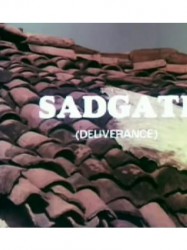
Délivrance (1981)
, 45minutesRéalisé par Satyajit Ray
Origine Inde
Genres Drame
Acteurs Om Puri, Smita Patil, Mohan Agashe, Gita Siddharth
Rôle Ecrivain
Note78%





Dukhi (joué par Om Puri), tanneur intouchable d'un village du Rajasthan, a besoin des services du prêtre brahmane (joué par Mohan Agashe) pour fixer la date du mariage de sa fille. Il se rend donc chez lui, et le brahmane, qui n'a pas le temps de venir, lui confie toute une série de travaux à accomplir. Bien qu'il se remette à peine d'une mauvaise fièvre, Dukhi s'exécute.
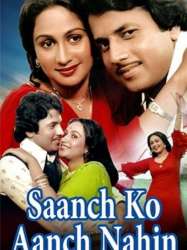
Saanch Ko Aanch Nahin (1979)
, 2h18Réalisé par Satyen Bose
Genres Drame
Acteurs Arun Govil, Om Shivpuri, Urmila Bhatt, Sundar, Gajanan Jagirdar, Om Puri
Rôle Short Story
Note68%





Manoharlal Agarwal (played by Om Shivpuri) and Satyaprakash Agarwal (played by Arvind Deshpande) are wealthy businessmen and close friends. Manoharlal enters in a dispute with Hariram and to solve this he asks his friend Satyaprakash to be the sole arbitrator. To bond their friendship more, Manoharlal proposes to wed his daughter Nirmala (played by Madhu Kapoor) with Satyaprakash's son Ajay (played by Arun Govil). He also proposes this in order to get favour from Satyaprakash in his case.
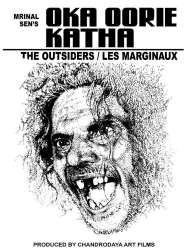
Les Marginaux (1977)
, 1h56Réalisé par Mrinal Sen
Origine Inde
Genres Drame
Acteurs Mamata Shankar, Pradeep Kumar
Rôle Créateur d'histoire originale
Note73%





Dans un village, un vieillard despotique et son fils choisissent de vivre dans l'oisiveté et la misère, refusant de servir de grands propriétaires injustes et méprisants. Mais, le fils rencontre une jeune fille et l'épouse. Bientôt, enceinte, celle-ci se tue à la tâche pour offrir aux deux hommes une existence plus ou moins confortable. Hélas, faute de soins, elle meurt en couches, « laissant les deux hommes dans l'amertume et le désespoir. » (Mrinal Sen) Suprême humiliation : le père et le fils seront contraints de mendier pour les obsèques de la jeune femme.

Les Joueurs d'échecs (1977)
, 2h9Réalisé par Satyajit Ray
Origine Inde
Genres Drame
Thèmes Jeu, Sport, Jeu d'échecs
Acteurs Shabana Azmi, Farida Jalal, Richard Attenborough, Amitabh Bachchan, Sanjeev Kumar, Amjad Khan
Rôle Ecrivain
Note74%





Le film montre en parallèle le drame historique du royaume indien d'Oudh (dont la capitale est Lucknow) et de son roi musulman Nawab Wajid Ali Shah, capturé par les Anglais, et l'histoire de deux notables obsédés par les échecs. Nawab, artiste et poète, monarque dépossédé, ne peut plus que se lamenter sur un mode poétique, une fois que les Anglais lui ont fait signer un traité de protection. Le général James Outram, qui intrigue pour faire tomber le roi, est conseillé par le capitaine Weston, tellement anglais dans ses manières mais tombé amoureux de la poésie ourdou.

Les Marginaux (1977)
Réalisé par Mrinal Sen
Genres Drame
Acteurs Pradeep Kumar, M. V. Vasudeva Rao, Mamata Shankar
Rôle Créateur d'histoire originale
Note73%





Dans un village, un vieillard despotique et son fils choisissent de vivre dans l'oisiveté et la misère, refusant de servir de grands propriétaires injustes et méprisants. Mais, le fils rencontre une jeune fille et l'épouse. Bientôt, enceinte, celle-ci se tue à la tâche pour offrir aux deux hommes une existence plus ou moins confortable. Hélas, faute de soins, elle meurt en couches, « laissant les deux hommes dans l'amertume et le désespoir. » (Mrinal Sen) Suprême humiliation : le père et le fils seront contraints de mendier pour les obsèques de la jeune femme.
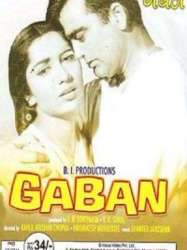
Gaban (1966)
, 2h49Réalisé par Hrishikesh Mukherjee
Genres Drame, Policier, Romance
Acteurs Sunil Dutt, Sadhana Shivdasani, Sadhana, Minoo Mumtaz, Leela Mishra
Rôle Créateur de nouvelle
Note65%





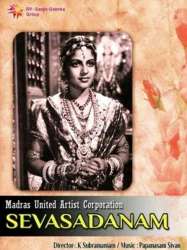
ஸேவாஸதனம் (1938)
, 3h30Réalisé par Krishnaswami Subrahmanyam
Genres Drame
Acteurs F.G. Natesa Iyer, S. Varalakshmi, M.S.Subbulakshmi
Rôle Créateur de nouvelle
Sevasadanam (lit. The house of Service) tells the story of an abused wife Sumathi (M. S. Subbulakshmi) who is driven out of her house by husband and into prostitution. Later she reforms her ways and devotes her life to running an institution for the children of prostitutes.
 Connexion
Connexion

